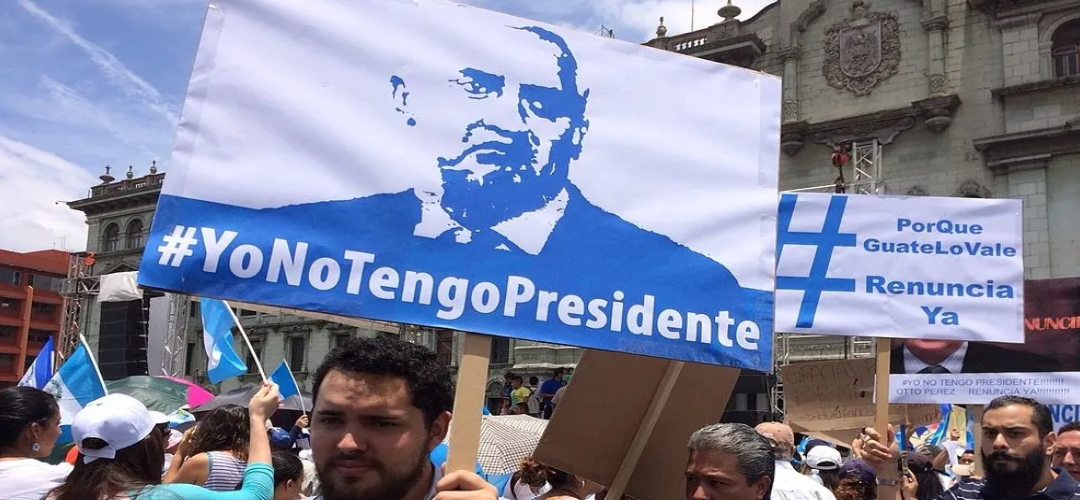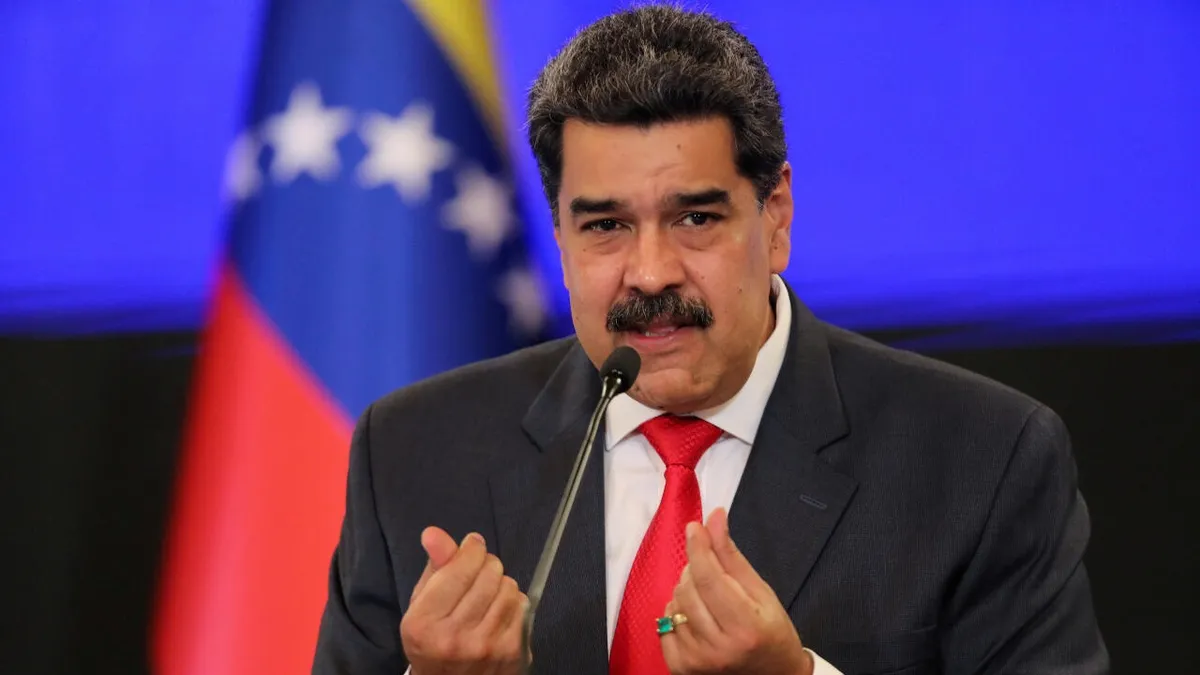The Rocky Road to Democracy
November 4, 2023 | Expert Insights

In a significant turn of events, the deeply polarised Venezuelan nation has come out with a ground-breaking agreement between the opposing camps that promises to restore political order. This accord could set the stage for fresh presidential elections next year.
Background
The agreement, meticulously crafted under Norway's deft mediation, tackles a host of pressing issues at the heart of Venezuela's protracted political and humanitarian crisis. A central component of this pact centres on releasing political prisoners, a measure that has nonetheless stirred controversy. The government's commitment to releasing solely those convicted of non-violent offences collides with the opposition's steadfast demand for the unconditional release of all political detainees.
Another pivotal facet of the agreement revolves around the repatriation of exiled opposition leaders, a provision designed to reinvigorate their participation in the nation's political processes. This crucial step bolsters inclusivity and strives to restore a democratic political landscape.
To safeguard the integrity of the impending elections, the accord mandates the creation of a new National Electoral Council (CNE), characterised by equal representation from both the government and the opposition. This strives to level the playing field for all political actors and guarantees the fairness of the electoral process.
Moreover, the agreement extends an invitation to international observers, who will oversee the 2024 elections. This inclusion serves to instil confidence in the electoral process, pre-empt potential irregularities, and cultivate transparency and trust.
The response to this agreement has been cautiously optimistic on both sides. President Nicolás Maduro, acknowledging the pact as a "step in the right direction," has pledged unwavering commitment to conducting free and fair elections, demonstrating a readiness to partake in the democratic transition. On the opposition front, Juan Guaidó lauds the agreement as a "victory for the Venezuelan people" and exudes confidence in the opposition's ability to clinch victory in the 2024 elections. This collective optimism underscores the belief that this agreement could pave the way for a more democratic Venezuela.

Analysis
Notwithstanding the substantial progress represented by this agreement, a plethora of challenges loom over its effective implementation. A prominent obstacle arises from contrasting interpretations of key provisions. The government's stance on releasing solely non-violent offenders diverges from the opposition's demand for the unconditional release of all political detainees, posing a formidable challenge to consensus.
Ingrained distrust between the government and the opposition poses yet another significant hurdle. The government has persistently accused the opposition of conspiring to overthrow its rule, while the opposition has vociferously alleged election tampering by the government. Rebuilding trust and forging cooperation between these deeply divided factions remains a formidable undertaking.
The release of political prisoners and the return of exiled opposition leaders augur a more inclusive and democratic political landscape. By affording all Venezuelans the opportunity to engage in the political process, this agreement stands as a pivotal stride toward mending the nation's fragmented democracy.
Further still, the beleaguered Venezuelan economy, ensnared by international sanctions, can experience resuscitation if the agreement is faithfully implemented. The international community, closely monitoring these positive developments, may contemplate alleviating some sanctions, potentially infusing fresh vitality into Venezuela's economic landscape.
Moreover, the agreement can potentially ameliorate the enduring violence and instability gripping Venezuela. For an extended period, the nation has been embroiled in conflict, with skirmishes between the government and the opposition punctuating its recent history. The successful execution of this agreement could catalyse a more tranquil and stable Venezuela, catalysing the much-needed processes of societal healing and development.
On the global stage, the international community has been vigilant in observing the developments within Venezuela. The joint statement by the United States, the European Union, Canada, and the United Kingdom welcomes the agreement as a "necessary step in the continuation of an inclusive dialogue process and the restoration of democracy in Venezuela." However, this international support underscores the imperative of upholding democratic principles and human rights in the process.
The agreement itself consists of 12 distinct points, each with its singular focus. It guarantees all candidates access to both public and private media, thereby ensuring a level electoral playing field. Furthermore, the accord guarantees candidates' unhindered and secure movement throughout the nation, thus striving to eliminate any potential impediments to their participation.
One particularly noteworthy point in the agreement concerns the eligibility of candidates for the presidential race. The document stipulates that "the registration for the presidential election will be open to all candidates who meet the constitutional requirements." This point has already ignited debates, as the opposition perceives it as an opportunity for previously barred candidates to reclaim their political rights. Conversely, the government's delegation contends that candidates previously banned by the comptroller-general will not be eligible to participate in the 2024 election. The eligibility issue carries substantial weight, particularly concerning opposition figures who have faced bans imposed by the comptroller-general, an official closely aligned with President Maduro.
As events continue to unfold, it remains uncertain who will be the government's official candidate. Nevertheless, President Maduro's intention to run for another term remains widely anticipated, raising questions about the potential ramifications of this agreement on his political future.
Further, in a very recent development, Venezuela's top court has suspended the results of the recent opposition primary, challenging promises made by President Nicolás Maduro's government to allow the opposition to select its leader. The Supreme Justice Tribunal, predominantly consisting of government appointees, demanded that organisers surrender all ballots and related documents. The move is widely viewed as a political manoeuvre to discredit the primary and the leading candidate, María Corina Machado. This development followed the criminal probe into how the primary was conducted. It comes after an electoral deal was reached between the government and the opposition, allowing the U.S. to ease strict sanctions on Venezuela's key sectors. The U.S. has warned that sanctions could be reinstated if bans on candidates are not lifted, and political prisoners released.
Assessment
- From a global vantage point, the United States maintains a profound interest in resolving the Venezuela crisis. The dire economic conditions prevailing in the country have impelled over seven million Venezuelans to seek refuge in foreign lands, with a significant number finding solace in the United States.
- Moreover, Venezuela boasts the world's largest proven oil reserves, rendering it a crucial player in the global oil market. Consequently, the relaxation of U.S. sanctions on Venezuela's oil industry holds the promise of economic benefits for both nations and an easing of global oil prices.
- The 2023 election agreement kindles hope for the Venezuelan populace and constitutes a positive stride toward democracy, stability, and economic rejuvenation. Let us wait for it to turn into a reality.








Comments